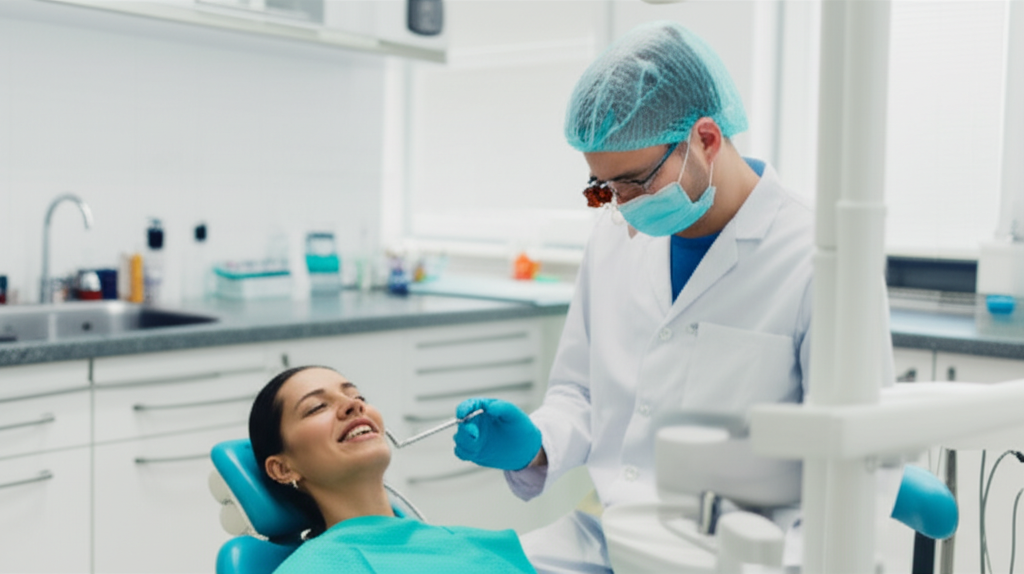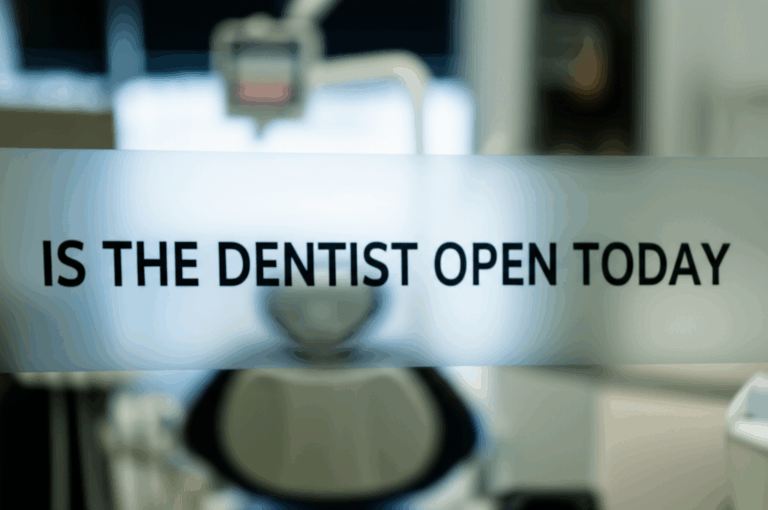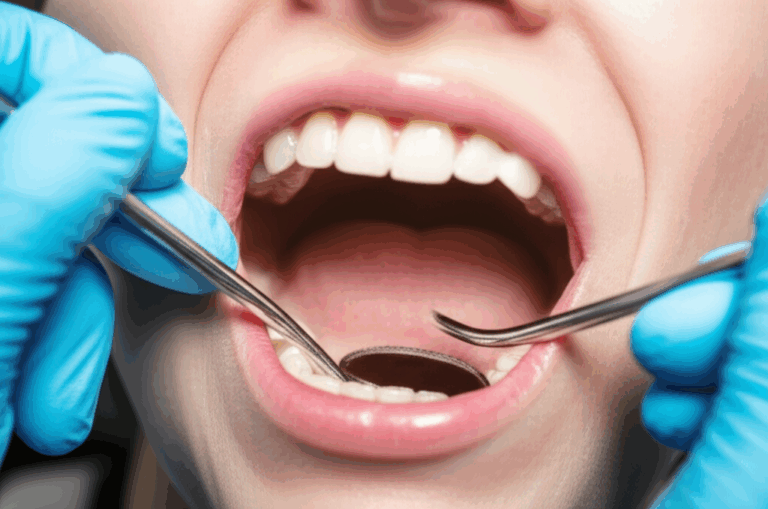
What is a DHMO Dentist? Understanding Your Dental Plan Options
Table of Contents
- Unpacking “Dental Health Maintenance Organization”
- Key Characteristics of a DHMO Dental Plan
- Your Primary Care Dentist (PCD) and In-Network Providers
- The Referral System: Seeing Dental Specialists
- Understanding Costs: Copayments and Fixed Fees
- Dentist Choice and Flexibility
- Cost Structure: Premiums, Deductibles, and Coinsurance
- Referral Requirements for Specialized Care
- Lower Monthly Premiums and Predictable Out-of-Pocket Costs
- Emphasis on Preventive Care (often fully covered)
- Simplified Billing and Administration
- No Deductibles or Annual Maximums in Many Plans
- Restricted Choice of Dentists and Specialists
- Dependency on Referrals for Specialized Treatment
- Potential for Limited Geographic Network Coverage
- Less Flexibility Compared to PPO Plans
- Ideal for those prioritizing lower costs and predictable expenses
- Suitable for individuals comfortable with limited dentist choice
- Good for those needing primarily routine and preventive care
- Checking Your Plan’s Provider Directory
- Confirming Dentist Participation
- Considerations When Choosing a DHMO Dentist
- “DHMO dentists offer lower quality care.” (Addressing quality standards)
- “You can never see a specialist with a DHMO.” (Clarifying the referral process)
The Core Definition: What Does DHMO Stand For in Dentistry?
Unpacking “Dental Health Maintenance Organization”
When I first saw the word “DHMO dentist,” I was confused. I always heard about dental insurance, but this sounded complicated. But really, it’s pretty easy once you explain it. DHMO means Dental Health Maintenance Organization, and it’s a kind of managed dental plan. Like a medical HMO, a DHMO uses a group of dentists and specialists that agree to give some services at prices set ahead of time.
Key Characteristics of a DHMO Dental Plan
From what I learned looking for dental coverage for myself and my family, here’s what you need to know about DHMO plans:
- You pick a main dentist (often called a PCD) from a list of approved dentists—this is who does most of your dental work.
- If you need a specialist (like someone who does braces or oral surgery), your PCD gives you a referral—think of it as a gatekeeper system.
- Most DHMO plans don’t have deductibles or yearly limits, and you often pay a set copay for each treatment.
- The whole setup is about saving money and making costs easy to understand, especially when you compare to more flexible plans.
I felt good when I learned how simple it could be—no big surprise bills because I accidentally used a dentist outside the network.
How a DHMO Dental Plan Works: The Network Model Explained
Your Primary Care Dentist (PCD) and In-Network Providers
Let me share what happened to me. When I got a DHMO plan from work, I looked through a list and picked my PCD. This dentist was my main contact for all things dental. The deal? I had to stick to the network—I couldn’t just go to any dentist I wished. If I needed something like a crown or bridge, my PCD had to do it or send me to someone who could. If you’re used to picking any dentist, this stands out.
Having a PCD made things straightforward. I always knew who to call, and I didn’t get surprise bills later.
The Referral System: Seeing Dental Specialists
What if you need braces or your wisdom teeth out? This is where things get tighter. For me, I couldn’t just call up an orthodontist. My PCD checked me first and, if it was needed, sent me to a specialist in the DHMO network. Sometimes I had to wait longer, and I couldn’t always pick the specialist I wanted. But, I saved a lot on the cost of specialists.
Understanding Costs: Copayments and Fixed Fees
Here is a real example. If I needed a filling, I would pay a flat $20 copay. Teeth cleanings? Usually free. No deductible, no limit for the year to watch out for. Compare that to other plans where you pay a percentage and might hit an annual max; DHMO plans felt easy to budget. Of course, if you go outside the network, the plan pays nothing—I learned this mistake early on.
DHMO vs. PPO: Key Differences for Dental Patients
Dentist Choice and Flexibility
After trying a few dental plans, here’s the main thing: With a DHMO, you can’t see just any dentist. You have to stay in the network. PPO (Preferred Provider Organization) plans let you pick almost any dentist, but going outside the preferred list costs more. If you are very picky about your dentist, this might matter a lot to you.
Cost Structure: Premiums, Deductibles, and Coinsurance
When I looked at the costs, my DHMO plan was much cheaper every month—like $15 compared to $50 for the PPO plan. My costs were easier to guess too, as most work had fixed copays. With PPOs you pay a deductible, a percentage of each bill (coinsurance), and they have yearly limits, so after that, you pay everything out of pocket.
Referral Requirements for Specialized Care
Something else: With a DHMO, you need your main dentist’s OK to see a specialist. With PPO plans, you can see almost anyone, but you’ll pay more if they’re not on the list.
Thinking back, the DHMO way could be slow, but it helped keep my costs from getting out of control.
Advantages of Choosing a DHMO Dentist and Plan
Lower Monthly Premiums and Predictable Out-of-Pocket Costs
If you care about saving money, like I do, this is the biggest draw. I paid a lot less each month, and over a few years, that really added up.
Emphasis on Preventive Care (Often Fully Covered)
One cool thing? Regular checkups, x-rays, and cleanings were mostly free. My dentist even reminded me if I skipped a cleaning—DHMO plans really want to keep your teeth in good shape and keep costs down in the long run.
Simplified Billing and Administration
Paying for care with my DHMO was simple. With set prices and not too many forms, I could focus on my teeth, not confusing bills.
No Deductibles or Annual Maximums in Many Plans
It was nice not having to count how much I’d spent this year. No deductible, no limit to stress over as December came around. If you’ve ever worried a crown would use up your whole dental budget, you know what this means.
Disadvantages and Limitations of DHMO Plans
Restricted Choice of Dentists and Specialists
But, there are downsides. My childhood dentist didn’t take DHMO plans, so I had to switch. If you have a favorite dentist or special dental needs, this can be tough.
Dependency on Referrals for Specialized Treatment
I needed to see an endodontist for a root canal once. With my DHMO, I went to my main dentist first for a referral, waited for that to get approved, then saw the specialist. It worked, but it wasn’t super fast.
Potential for Limited Geographic Network Coverage
If you move or travel a lot, you might have trouble. DHMO plans often focus on a small area. When I moved cities, I had to get a new dentist—once I even struggled to find a specialist nearby who took my plan.
Less Flexibility Compared to PPO Plans
In the end, DHMO plans mean you’re limited by the network and need OKs for some care. That’s fine for some, hard for others.
Is a DHMO Dental Plan Right for You? (Who Benefits Most)
Ideal for Those Prioritizing Lower Costs and Predictable Expenses
If you want the cheapest monthly price and like knowing exactly what you’ll pay for each treatment, DHMO can be a great fit.
Suitable for Individuals Comfortable With Limited Dentist Choice
Some people don’t mind having a plan pick their dentist. If you’re not set on one person, the process is pretty easy.
Good for Those Needing Primarily Routine and Preventive Care
When all I needed was checkups, cleanings, and a filling now and then, DHMO worked well. But if you know you’ll need a lot of specialist work, you may want a broader plan, like a PPO.
Finding a DHMO Dentist: Steps to Take
Checking Your Plan’s Provider Directory
When I first signed up, my insurance company gave me a list of dentists who took my plan. I looked it over, read some reviews, and checked out office locations. It’s always smart to start here.
Confirming Dentist Participation
Networks change all the time. I learned to call the dentist before scheduling, just to make sure they still took my DHMO plan. It’s worth the quick phone call.
Considerations When Choosing a DHMO Dentist
I asked friends about their dentists, looked for office hours that fit my schedule, and wanted a place that used new technology (some use a digital dental lab for better care). Also check what labs and specialists they work with, as this can affect the quality and how fast you get things like crowns or dentures.
Common Misconceptions About DHMO Dental Plans
“DHMO Dentists Offer Lower Quality Care.” (Addressing Quality Standards)
People say this a lot—and honestly, I was worried too. But the truth is, every dentist, DHMO or not, has to meet rules set by dental boards. My DHMO dentists were just as skilled as the PPO ones. My dentist, Dr. Joe Dental, even said DHMO dentists sometimes get checked more often. The list of dentists is smaller, but the care can still be great—as long as you talk and keep each other informed.
“You Can Never See a Specialist With a DHMO.” (Clarifying the Referral Process)
This just isn’t true. You can see specialists—like gum doctors, oral surgeons, or kids’ dentists—but you need a referral from your main dentist. It takes some planning, but you can do it. For me, the referral system actually kept things organized and avoided double treatments.
Conclusion: Making an Informed Decision About Your Dental Care
After years of figuring out dental insurance—and sometimes messing up because I missed small print—I think choosing a plan isn’t about picking just one “best.” DHMO plans, and DHMO dentists, give you ways to save money, keep things easy, and focus on regular care. They aren’t for everyone. If you want more freedom, want to see any specialist fast, or want to keep your old dentist no matter what, PPO is probably better.
The key is to look at the cost, what you get, and what you give up, and see what matters most to you. Ask questions. Check with dentists or even dental labs (like a china dental lab) to see who they work with behind the scenes. See how your dentist connects with labs like a crown and bridge lab or a removable denture lab. How these things work together can affect the time it takes to finish treatment and the materials used in your mouth.
For me, it was nice to know my costs were under control—and that my main dentist was looking out for me. That’s what a DHMO dentist meant for me: simple, cheaper, and focused on the basics. If that matches what you need, DHMO could be just right for you.
This article was checked for accuracy by Dr. Joe Dental, an experienced general dentist and dental benefits teacher.








